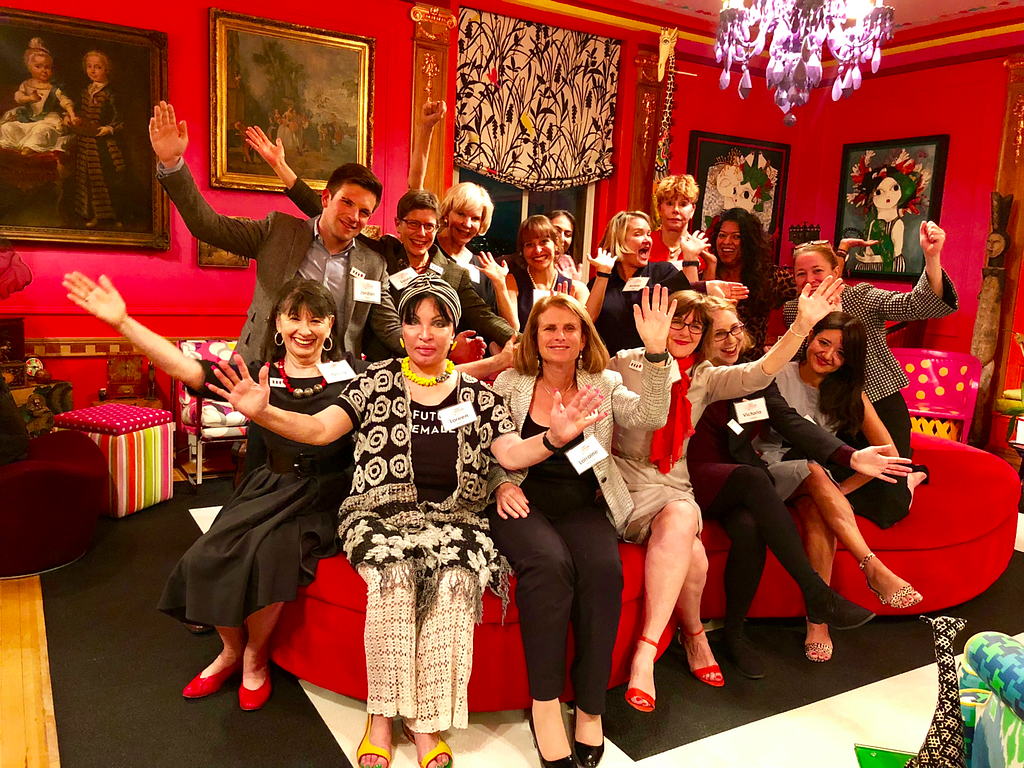Why I Love Controversy (and You Should Too) — Leadership Power Tool #4
Why I Love Controversy (and You Should Too) — Leadership Power Tool #4

Issue 67 — September 23, 2018
The country is embroiled in a major controversy. The makeup of the US Supreme Court is at stake, and with it the future of our country. Perhaps who or what we will be as a culture for the next generation will be determined by this decision.
Across kitchen tables, blaring from TV talking heads, and over social media, people are lining up behind Brett Kavanaugh or Christine Blasey Ford. Who do you believe? Why?
Should the alleged behavior of a 17-year-old influence whether he is an acceptable candidate for the highest court in the land decades later? Have we learned nothing about the pervasive nature of sexual harassment and assault in our culture from the #metoo movement and isn’t it about time we believe women’s claims without equivocation?
The arguments can become fierce, loud, and angry — scary even. It won’t surprise you to know my own confirmation bias is with the woman, but that’s not the point of this article.
I want to tell you why the controversy in and of itself is a good thing, and how we can embrace it to make it a powerful leadership tool.
How do you feel about controversy?
Do you hate controversy because it feels too chaotic — it’s negative and frightening? Do you say, “Bring it on, I love controversy — it makes life interesting and it’s how you make big systemic change?” Or, are you somewhere in the mushy middle: “I know you have to break eggs to make an omelet but controversy still makes me uneasy?”
I have at one time or another stood at all those places on the continuum for a variety of reasons.
But I’ve come to believe that learning to embrace controversy and ride into the wave of it is one of the most effective ways to lead a company or a country to better ideas. Used effectively, it’s a productive way to hammer out better solutions to complex problems and it’s certainly essential to making social change.

Hosted by the amazing Loreen Arbus, this group of Take The Lead supporters is ready to take on any controversy that may come our way in the quest for leadership gender parity by 2025. Back L-R: Jordan Stein, Laura Smith Dunaief, Rachel Cohen Gerrol, Alyssa Bernstein, Amber Allen, Taylor Hanex, Misha Rao, Kristin Boggiano; Front L-R: Gloria Feldt, Loreen Arbus, Lorraine Hariton, Ilene Wachs, Victoria Taylor, Erika Soto Lamb
Without controversy, democracy itself is at risk. As President John F. Kennedy said, “Without debate, without criticism no administration and no country can succeed and no republic can survive.”
Or as former Texas Agriculture Commissioner and current radio host Jim Hightower says in typical Texas pith, “There’s nothing in the middle of the road but yellow stripes and dead armadillos.
Yet the natural human tendency is to back away from controversy. Women have a particular resistance to controversy for good reason. Because the less power your culture grants you, the more vulnerable you feel to conflict and controversy.
And women have borne the brunt of the negative side of power for millennia — not just discrimination but rape and abuse, and denial of our own personhood in the law and practice.
If this is the moment for women to take on leadership roles in parity with men, and if women’s leadership is essential to the future of the earth and the economy, then we must learn to embrace controversy and use its energy to propel ourselves and our ideas forward.
After the huge tsunami in Indonesia, the New York Times magazine did an article about man on tiny boat who survived tsunami by riding into the waves rather than trying to escape them.
Riding into the wave and using its energy to propel him literally saved his life.
Similarly, embracing controversy and riding into the wave of controversy, using its energy to propel our leadership forward is absolutely essential to a vibrant society where people engage the issues forthrightly and seek not compromise, but the best possible solutions.
And that’s why we need the 7 C’s of controversy, and why #EmbraceControversy is one of the Leadership Power Tools I love to share.
Controversy is having the
Courage of your
Convictions so that you state your
Case without hesitation… because controversy gives you a platform to share your ideas, it is a teacher, it gets people’s attention. Sometimes it will cause
Conflict but that’s ok because used right, controversy is productive conflict that forces people to think about the issues and in so doing, they
Clarify their values and beliefs, which in turn is the only thing that can lead to sustainable
Change.

I was thrilled that when I was speaking at Cornell for Cornell Hillel recently, almost everyone in the full house audience said they are planning to vote this November. Participating in the political process is one of the most important ways to #embracecontroversy in a positive way.
Every day we are confronted with people who oppose the progress women are trying to make, are making. They use controversy very well. They never shy away. They make women’s equality controversial even though it should be just a matter of simple justice.
Paradoxically, the way to keep them from being successful is not to back away from the controversy but to engage it, lean into it, use it as a teacher while we have people’s attention.

President and
CEO
of Girl Scouts of America, Sylvia Acevedo, is riding into the wave of controversy as the Boy Scouts seek to enroll girls. I had the pleasure of meeting with her last week to learn how she is launching major initiatives to strengthen the unique role of the Girl Scouts in developing female leaders.
I’m not saying to create controversy for the sake of controversy. That’s wasted energy. But controversy in the service of what you believe to be true or right, is one of the most powerful leadership tools on the planet.
We are all in that tiny boat. If we will survive and thrive, we will ride courageously into the wave of controversy, having the courage of our convictions to state our case, even if it leads to conflict knowing that the conflict itself is a clarifier that will ultimately lead to change. That we can use the energy to lead ourselves forward.
Social realities are created by clash of uncertainties, according to political scientist Walt Anderson. In the workplace, trying to keep everyone happy by avoiding controversy has been tagged a sign of bad management. Designer Donatella Versace speaks about how creativity comes from a conflict of ideas. And entrepreneur Margaret Heffernan gave a powerful TED talk on why disagreement is central to progress.
<a href="https://medium.com/media/41b84cce773b7b4e2be4e1512ac41636/href">https://medium.com/media/41b84cce773b7b4e2be4e1512ac41636/href</a>
That’s why women must learn not just to deal with or dodge but to embrace controversy if we are to be successful leaders in any sphere.
So go ahead, speak your piece, press your argument. Don’t back away; use the energy of controversy to reach the best solution and shape the world you want.
GLORIA FELDTis the New York Times bestselling author of several books including No Excuses: 9 Ways Women Can Change How We Think About Power, a sought-after speaker and frequent contributor to major news outlets, and the Co-Founder and President of Take The Lead. People has called her “the voice of experience,” and among the many honors she has been given, Vanity Fair called her one of America’s “Top 200 Women Legends, Leaders, and Trailblazers,” and Glamour chose her as a “Woman of the Year.” As co-founder and president of Take The Lead, a leading women’s leadership nonprofit, her mission is to achieve gender parity by 2025 through innovative training programs, workshops, a groundbreaking 50 Women Can Change The World immersive, online courses, a free weekly newsletter, and events including a monthly Virtual Happy Hour program and a Take The Lead Day symposium that reached over 400,000 women globally in 2017.
